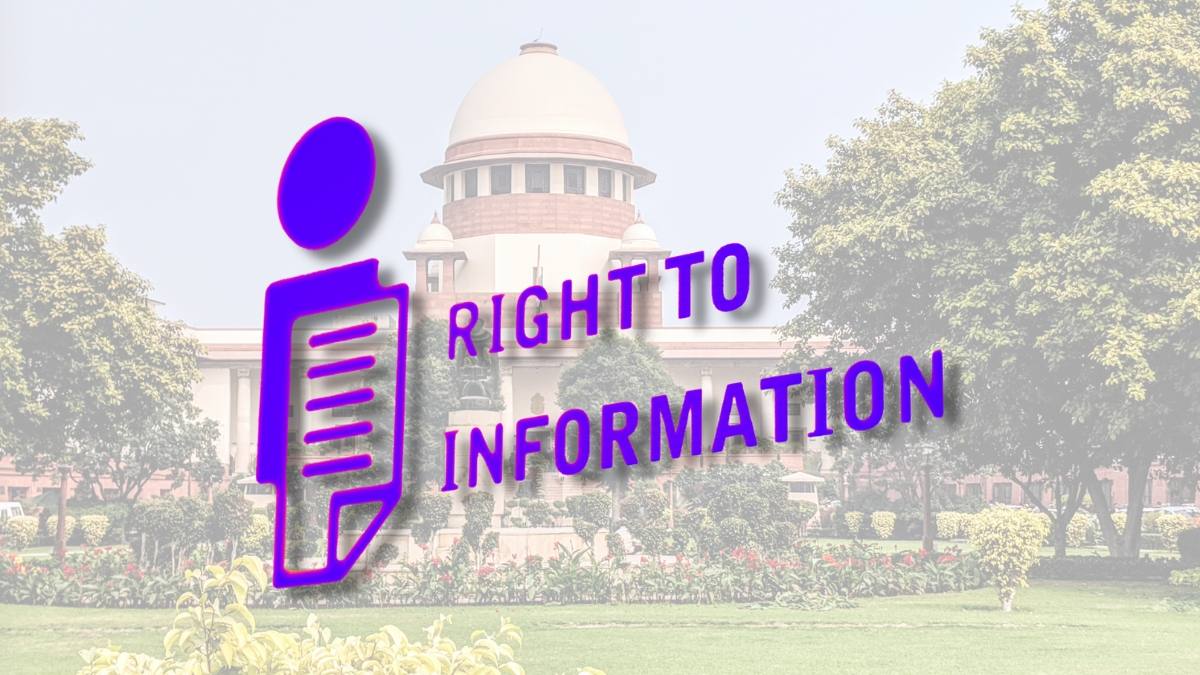New Delhi: In all of India’s states and union territories, the Supreme Court of India has issued orders directing the creation of online RTI portals.
Currently, RTI services are accessible through postal services or in person. This has in fact created a lot of issues for Indians living abroad with regard to filing an RTI application. The Centre has an online RTI portal service available for its citizens, but the states do not have such a facility.
There are states in India that claim to be a complete digital as well as e-governance state, but even those states do not have an online RTI portal for the convenience of the people.
Adv. Jose Abraham, President of Pravasi Legal Cell and a lawyer at the Supreme Court of India, approached the highest court in India with a plea to seek online portals to be established by the states and union territories of India.
Pravasi Legal Cell is an organisation that has been working for over a decade for the legal empowerment of expatriates. Pravasi Legal Cell is an organisation that has won several court judgements in favour of expatriates from the Supreme Court on issues including refund of cancelled flight tickets during the COVID period. Cases, including those involving free legal aid to deserving expatriates abroad and through Indian missions, are now under consideration by the Supreme Court.
We approached the President of Pravasi Legal Cell, Adv. Jose Abraham, for more information on this matter.
What is the importance or significance of an online RTI portal, and what will change from now onwards?
Adv. Abraham: Please keep in mind that a citizen can apply for information in two ways under the RTI regime. One is through an online portal, and the second is through a physical form, either in person or by postal method. As far as the central government is concerned, there is an online RTI portal for the central government and all the departments coming under the central government. There is a well-functioning online RTI portal. But as far as the state governments are concerned, there is no online RTI portal. In light of this, PLC filed this PIL with the Supreme Court of India. It is very important to note that, in the absence of an online RTI portal, a citizen has to go to any department in person, where he needs to go physically, to file an RTI application. And for collecting the information, he has to go there in person or opt for the postal method, which is very lengthy, very expensive, and very time-consuming. But if there is an online RTI portal, a person can simply apply for that RTI with a mere click. That’s the difference between these two.
What made you take up this issue?
Adv. Abraham: Why has PLC filed this matter? For example, an expat or pravasi living in a foreign country would have numerous requirements. He needs to approach his panchayat, the village office, the district collector, or any other department in the state. There may be a lot of information he needs to obtain. So, for that matter, he must come in person or send a letter from a foreign country. That’s very time-consuming and very expensive. There are certain cases, certain matters. He needs to get information from the concerned police station regarding an FIR. So there is urgency as well. Now, the Supreme Court has stated that in every state, there has to be an online RTI portal so that he can sit at any place and apply online and get the reply through the Internet.
